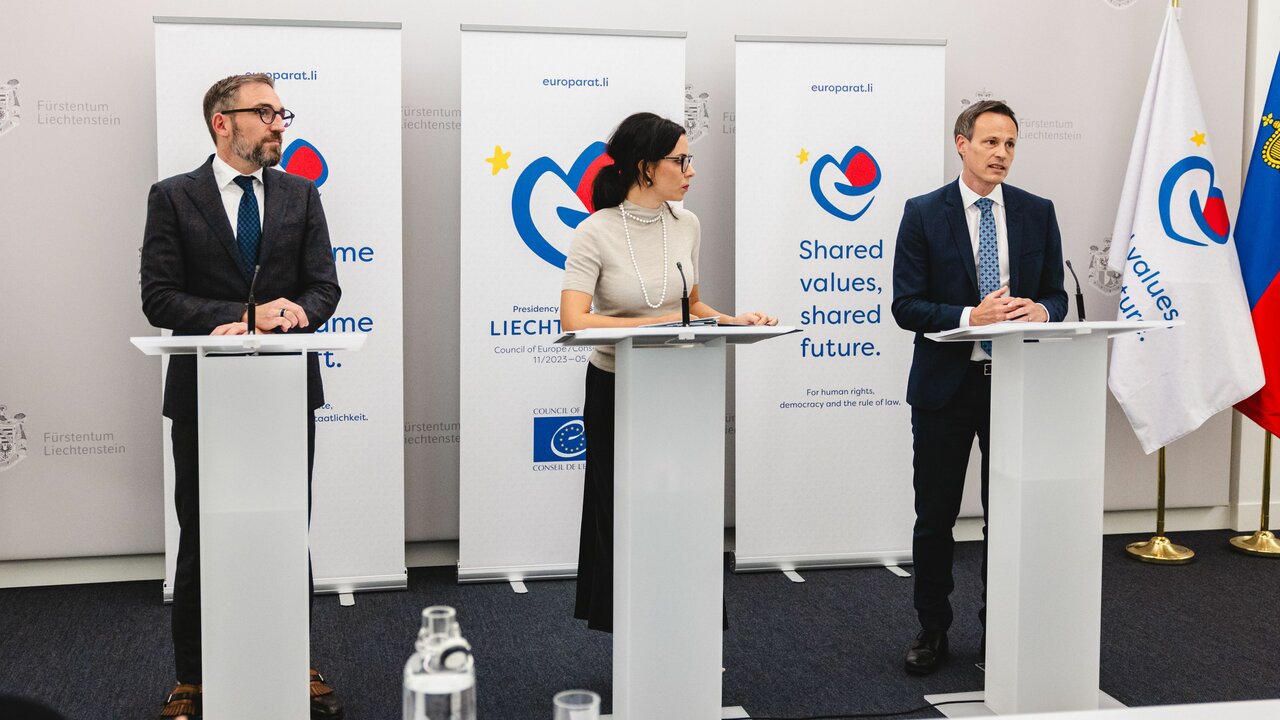A key task lies ahead for Liechtenstein as it takes over the Presidency of the Council of Europe’s most important decision-making body, the Committee of Ministers, in a few weeks’ time. For that presidency a diverse framework programme of events aimed at the general public within the country
The Council of Europe’s fundamental values also form our society’s foundations
In taking over the presidency of the Committee of Ministers on 15 November 2023 Liechtenstein is responsible for implementing the goals and priorities of the Council of Europe. Upholding the Council’s fundamental values of human rights, democracy and rule of law is more important than ever, at a time when Russia is waging a war of aggression against Ukraine and anti-democratic tendencies are growing in Europe. During its presidency, Liechtenstein will actively campaign for the safeguarding of these values and at the same time advocate a future-oriented functioning of the Council of Europe. In so doing, Liechtenstein will not only make a major contribution to reinforcing the multilateral system and overcoming shared European challenges but also show itself to be a reliable, competent and committed partner in Europe.
A diverse framework programme of events both in and outside Liechtenstein
Besides its major importance in terms of foreign policy, Liechtenstein’s presidency also provides an opportunity to familiarise the people of Liechtenstein with the Council of Europe’s work and the impact that work has. To that end, numerous free-admission events open to the public are planned in Liechtenstein. The country’s citizens will be able to find out more about the Council of Europe and the presidency programme at information events on 25 October and 2 November. All information concerning the presidency and related events can be consulted on the presidency website www.europarat.li.
Presidency of the Council’s central decision-making body – the Committee of Ministers
This is the third time that Liechtenstein has held the presidency of the Committee of Ministers since joining the Council of Europe in 1978. The Committee of Ministers is the Council of Europe’s central decision-making body. It is made up of the ministers of foreign affairs of all the member States, with Liechtenstein represented by Foreign Minister Dominique Hasler. At the routine meetings of the Committee of Ministers it is the member States’ permanent representations in Strasbourg who deputise for the ministers. Ambassador Domenik Wanger and his team fulfil this role for Liechtenstein. The Council of Europe is the oldest and biggest European organisation protecting human rights and safeguarding democratic security and the rule of law. It has 46 member States and its decisions have an impact on the lives of some 700 million citizens. Liechtenstein is actively committed to promoting human rights, combating the financing of terrorism and money laundering, and fighting corruption, among other aims.
